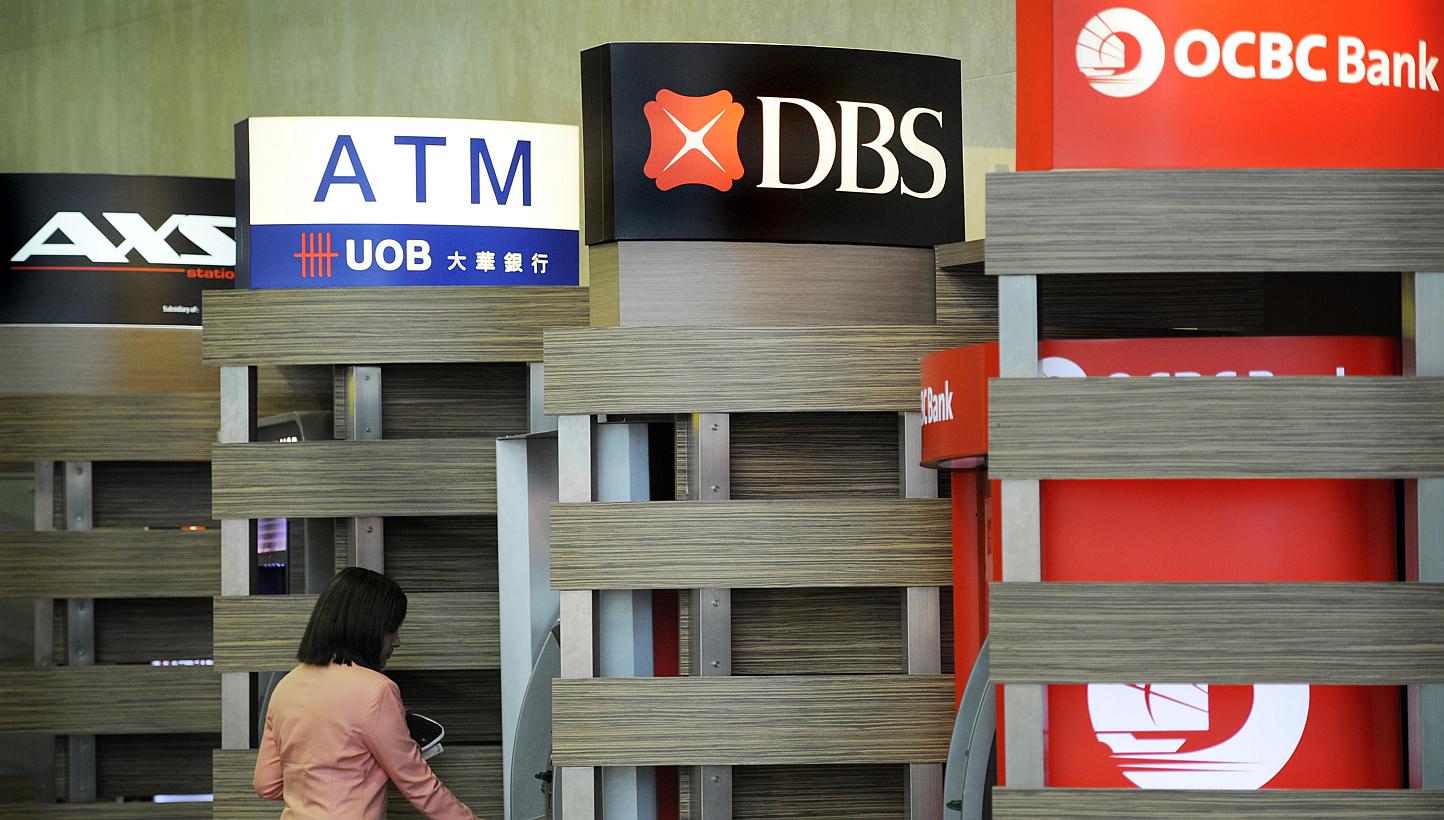Moody's compares Singapore's Big Three banks: DBS, OCBC and UOB: Here's what it found
Sign up now: Get ST's newsletters delivered to your inbox

A customer using a DBS automated teller machine (ATM), standing between the ATMs of UOB and OCBC, at Changi Airport. Credit rating agency Moody's Investors Service says a number of differences among Singapore's three biggest lenders could lead to their different credit ratings over time. -- PHOTO: BLOOMBERG
Follow topic:
SINGAPORE - Credit rating agency Moody's Investors Service says a number of differences among Singapore's three biggest lenders - DBS Bank, Oversea-Chinese Banking Corp and United Overseas Bank Ltd - could lead to their different credit ratings over time.
In a report released on Wednesday, Moody said that the Big Three - all now rated Aa1 stable, aa3 - exhibit similarly strong financial fundamentals; namely robust asset quality, good capital adequacy levels, and healthy funding and liquidity profiles. As a result, their baseline credit assessments are at the same "aa3" level - a category which is among the highest that Moody's assigns to banks globally.
But there are differences among the three banks that include factors such as: (1) their geographic mix; (2) their varying appetites for capital market activities; (3) their funding structures; and (4) challenges related to the introduction of Basel III rules.
"The banks' different geographic mixes could increase risks for OCBC and DBS more than they would for UOB, and the banks' varying appetites for capital market activities raise risks for DBS more than for the other two banks," says Eugene Tarzimanov, a Moody's vice-president and senior credit officer who authored the report.
"As for funding structure, DBS is better placed to benefit from higher interest rates than the other two banks, while OCBC faces greater challenges related to Basel III capital deductions," Mr Tarzimanov added.
In more detail, what Moody's says about:
1. Geographic mix
While all three banks are expanding their cross-border transactions, UOB's proportionately larger exposure to Singapore and lower share of loans in banking markets that Moody's considers riskier than Singapore - such as China, Thailand and Indonesia - lowers its exposure to country-related risks when compared to OCBC and DBS.
2. Capital market activities
The three banks generally exhibit a low appetite for capital market activities. However, of the three, DBS' market risk appetite is the largest and its earnings exhibit a slightly higher share of trading gains when compared to OCBC and UOB.
3. Funding structures
Higher interest rates in the US and Singapore will have a greater positive effect on DBS' earnings, owing to its superior funding structure. Moody's report notes that DBS' cost of funding is lowest, owing to its higher share of low-yielding customer deposits.
As for OCBC in particular, Moody's report notes that the bank's profits are somewhat dependent on the volatile financial performance of its insurance arm, Great Eastern Holdings. Despite this volatility, higher interest rates will be generally positive for the financial performance of Great Eastern.
Moody's report says that while life insurance involves low-risks, profits for the sector are associated with some degree of volatility, partly because of complex accounting rules. The contribution of the insurance segment to OCBC's quarterly profits, for instance, has been volatile and ranged from 5 to 32 per cent over the last eight quarters.
4. Impact of Basel III rules
The rules will introduce a greater challenge for OCBC's capital adequacy in the coming years, because OCBC faces large deductions from the CET1 capital of its investments in Great Eastern, while DBS and UOB face much smaller deductions.
Under Basel III rules adopted in Singapore, banks that own non-consolidated insurance subsidiaries have to fully deduct these investments from their CET1 capital on Jan 1, 2018.

